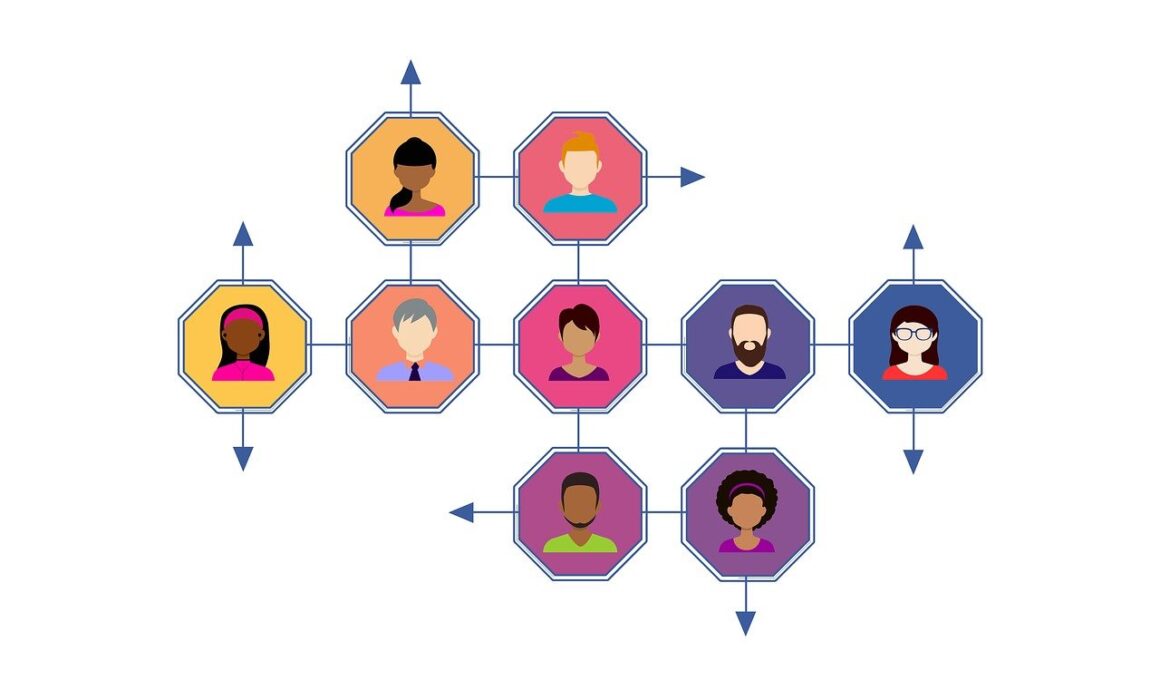Increasing Customer Loyalty with Social CRM Automation
In today’s highly connected world, fostering customer loyalty has become a paramount objective for businesses. Social CRM automation plays a crucial role in enabling companies to engage efficiently with their customers on various platforms. This technology integrates social media channels into customer relationship management, allowing organizations to gather insights and respond to feedback promptly. Through social CRM, businesses can analyze customer interactions across multiple online channels to better understand their preferences. This enhanced comprehension facilitates personalized marketing strategies, ultimately leading to stronger customer bonds. Moreover, automating responses to common queries or issues allows brands to maintain consistent engagement and reliability. Businesses can utilize social listening tools to gain insights, providing an opportunity to address concerns proactively. This not only builds trust but also enhances overall customer satisfaction. Companies are thus empowered to design targeted campaigns that resonate well with their audience, enhancing loyalty. Furthermore, leveraging automated reports and analytics helps identify trends in customer behavior, supporting strategic decision-making. In an era characterized by changing consumer behaviors, social CRM automation is essential for cultivating long-term relationships with customers, leading to enhanced loyalty and business growth.
Enhancing Engagement Through Automation
One of the primary advantages of social CRM automation is its ability to enhance customer engagement effortlessly. With automation tools, businesses can create tailored content that resonates with their target audience while ensuring consistent communication. These tools help schedule posts across social media platforms, allowing companies to maintain a steady online presence. Engaging content not only attracts potential customers but also retains existing ones. Additionally, with the automation of customer interactions, enterprises can swiftly address inquiries and concerns, which is crucial for retaining customer interest. Automated responses can provide immediate solutions, enhancing the customer experience and minimizing frustration. Analytics from social media interactions help shape future engagements, allowing businesses to refine their communication strategies continually. Customer sentiment analysis, conducted through automated tools, unveils valuable insights into customer needs and preferences. This empowers brands to position themselves effectively in the marketplace while remaining attuned to their audience’s desires. By leveraging social CRM, organizations can ensure that they are present where their customers are active, thereby fostering deeper connections. Ultimately, enhancing engagement with automation results in increased loyalty and repeat business, creating a solid foundation for long-term success.
To further boost customer loyalty, it’s essential for businesses to integrate feedback mechanisms into their social CRM strategies. Feedback from customers, whether positive or negative, offers invaluable insights into their satisfaction levels and experiences. Automating the collection and analysis of feedback through social channels allows companies to capture real-time opinions effectively. This can include polls, surveys, or monitoring comments to gauge customer sentiment. Such insights enable businesses to make necessary adjustments, demonstrating to customers that their opinions matter. When customers feel heard, they are more likely to remain loyal to the brand. Moreover, automated follow-ups after purchases encourage customers to share their experiences, fostering a stronger emotional connection. Addressing customer concerns directly through social platforms reflects transparency and builds trust, which are critical factors in loyalty. Implementing changes based on feedback not only improves products or services but directly influences customer retention. Additionally, sharing how customer feedback has led to changes can further enhance brand loyalty, as individuals appreciate brands that value their input. Thus, integrating feedback automation within social CRM leads to a more engaged customer base and fosters long-lasting loyalty.
Personalization as a Loyalty Driver
Another fundamental aspect of social CRM automation is the ability to deliver personalized experiences to customers. Consumers increasingly expect brands to cater to their preferences and needs, and personalization plays a vital role in meeting this expectation. Automated tools can analyze customer data, helping businesses tailor their marketing strategies and product offerings to match individual preferences. Personalized email campaigns, for instance, can be sent automatically based on previous engagements and purchases, making customers feel valued. Such targeted communications demonstrate an understanding of customer needs, which in turn enhances loyalty. Furthermore, personalized recommendations provided via social media channels increase the chances of engagement, as customers are more likely to respond when they feel the content is relevant. Social CRM automation can segment audiences based on behavior and demographics, allowing brands to deliver the right message to the right person at the right time. This precision can transform a one-time customer into a loyal brand advocate. By prioritizing personalization through automated systems, businesses not only improve customer experience but also strengthen their loyalty programs and long-term relationships with customers.
Social CRM automation also evolves customer loyalty programs to be more effective and appealing. Traditional loyalty programs often lack engagement and personalization, leading to customer disengagement over time. However, integrating social CRM allows businesses to create dynamic loyalty programs based on real-time customer data. By analyzing purchasing patterns and customer interactions, companies can offer rewards that resonate with their audience’s interests. Automating the tracking of customer interactions makes it easier for brands to recognize loyal customers and reward them accordingly. Additionally, incorporating social sharing features encourages customers to promote the loyalty program on their networks, further expanding brand reach. Engaging campaigns that motivate customers to share their experiences can create a buzz around the loyalty program, attracting new participants. By providing valuable rewards tied to specific milestones or social actions, businesses enhance both customer engagement and loyalty. Thus, social CRM automation transforms how loyalty programs operate, making them more personalized and aligned with customer expectations. Consequently, this results in increased customer retention and fostered brand advocacy, simultaneously driving sustainable business growth.
Utilizing Analytics for Strategic Improvements
Analytics plays a crucial role in maximizing the impact of social CRM automation on customer loyalty. The ability to gather and analyze data from various social channels provides businesses with insights into customer behaviors and trends. By employing analytical tools, companies can gauge the effectiveness of their engagement tactics continuously. Tracking metrics such as customer satisfaction, response times, and engagement rates helps refine overall strategies. Identifying successful campaigns allows businesses to replicate effective strategies while addressing areas needing improvement. Such data-driven decisions increase the likelihood of fostering customer loyalty, as tailored strategies resonate better with audiences. Additionally, competitor benchmarking can unveil industry trends and emerging preferences, enabling proactive adjustments. Moreover, predictive analytics employing customer data allows companies to anticipate future behaviors, preparing them to meet customer needs effectively. The combination of real-time insights and historical data helps businesses understand what drives loyalty and enables them to optimize their offers. In this way, analytics fosters a culture of continuous improvement, allowing organizations to evolve alongside their customers, strengthening relationships and enhancing loyalty in the highly competitive market space.
Lastly, the integration of social CRM automation with emerging technologies holds the potential to revolutionize customer loyalty strategies. As artificial intelligence and machine learning technologies advance, businesses can leverage them for predictive customer insights. By automating processes through AI-driven platforms, companies can deliver more efficient and personalized customer interactions. Chatbots powered by AI facilitate real-time responses, ensuring customers receive assistance without delays. Furthermore, machine learning algorithms can help refine marketing strategies by predicting customer preferences based on past behavior, allowing for timely, relevant campaigns. Incorporating augmented reality or virtual reality into social media interactions provides immersive experiences that foster stronger emotional connections between brands and customers. These technological advancements create opportunities to engage with customers uniquely and creatively. Additionally, automating customer support with sophisticated technologies enhances service delivery quality, further strengthening loyalty. In a rapidly evolving digital landscape, staying ahead of technological trends is vital for businesses aiming to cultivate long-term loyalty. By embracing automation and innovation, organizations can effectively address customer needs and aspirations, ultimately driving brand loyalty while establishing a competitive advantage in the market.
Conclusion: The Future of Social CRM Automation
In conclusion, social CRM automation is an invaluable asset in enhancing customer loyalty across various industries. By streamlining communication processes, personalizing experiences, and utilizing analytics, businesses can engage customers effectively. As consumer expectations evolve, organizations must adapt their strategies to prioritize customer needs actively. Automation not only improves engagement but also fosters meaningful relationships between brands and their customers. As technologies continue to advance, the future of social CRM automation appears promising, offering new opportunities to cultivate loyalty. Companies that embrace these changes can differentiate themselves in today’s competitive landscape. By integrating emerging technologies, brands can further enhance their social CRM strategies, ensuring they remain at the forefront of the industry. Consistently demonstrating value, understanding customer preferences, and providing exceptional service will solidify customer loyalty and contribute to sustainable growth. Ultimately, the marriage of customer relationship management with social media will redefine how businesses connect with their customers. By prioritizing social CRM automation, organizations pave the way for a future where loyalty is not just a goal but a fulfilled promise, fostering enriched customer experiences and long-lasting relationships.


